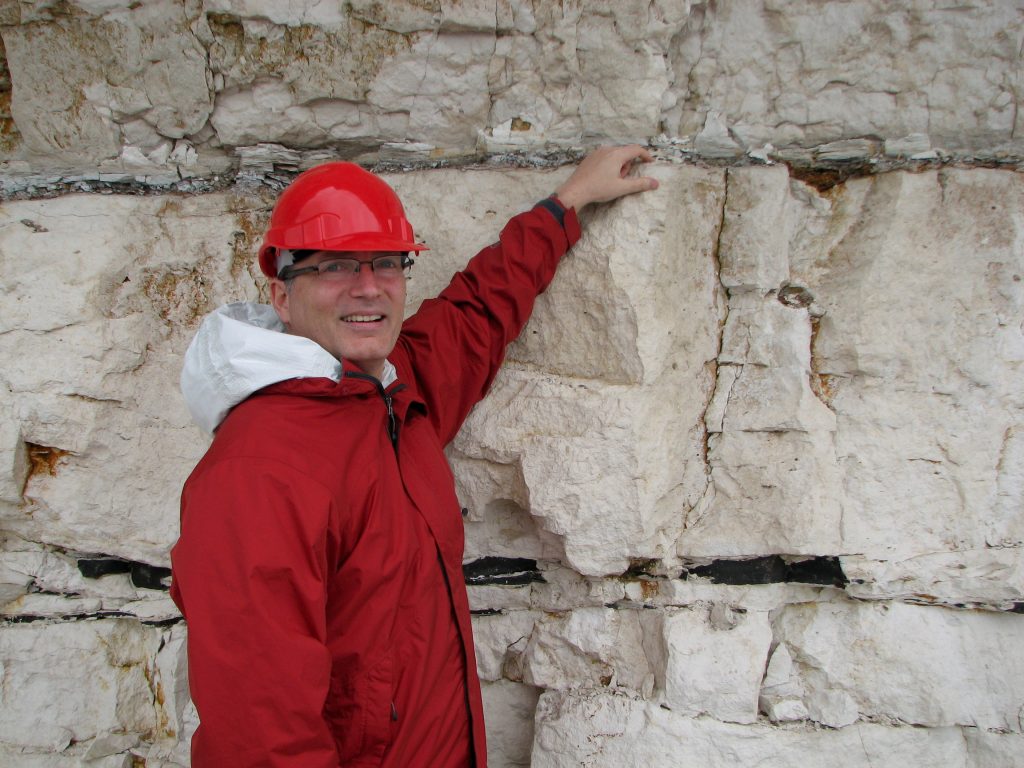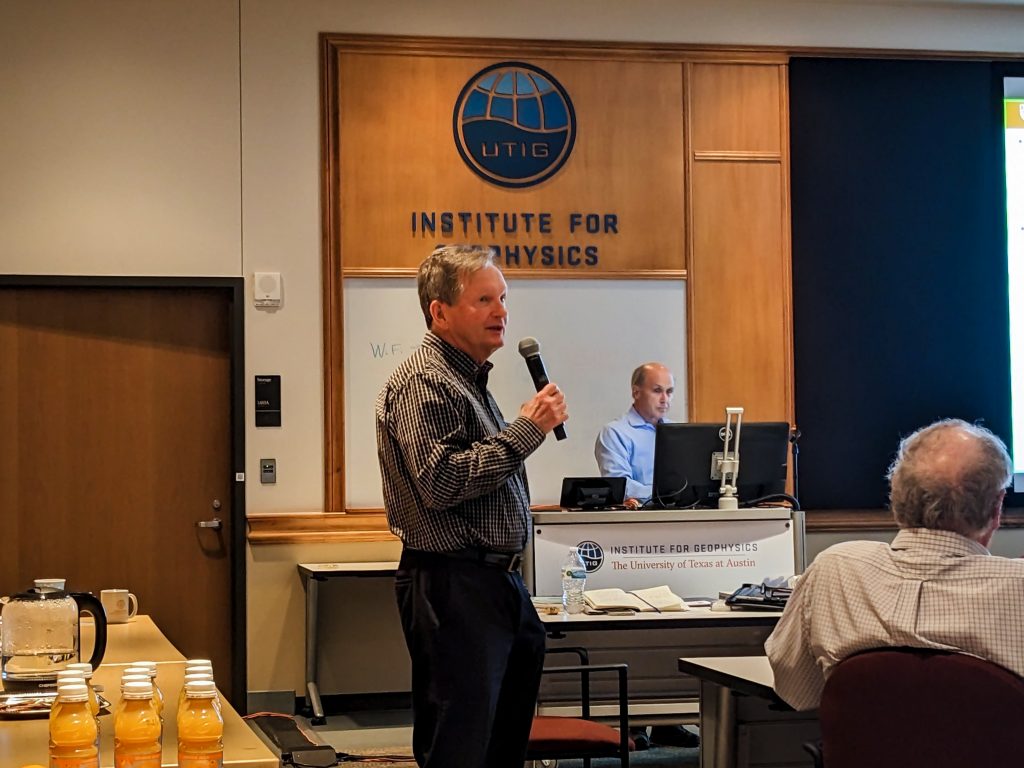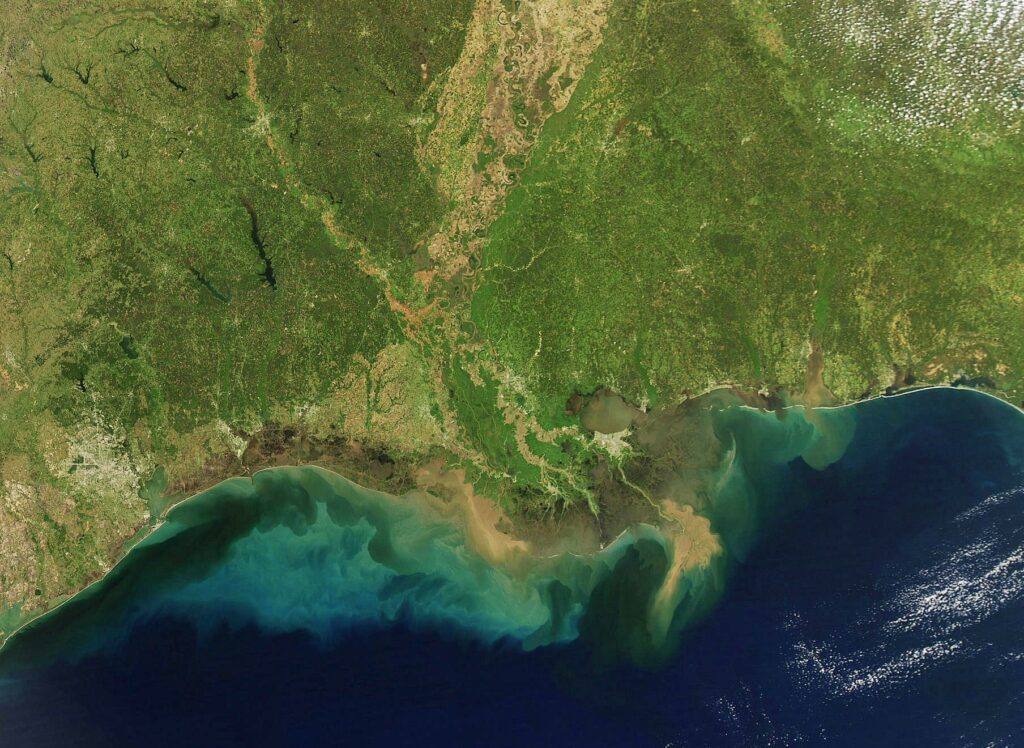Richard Denne has been named the new program director for the Gulf Basin Depositional Synthesis (GBDS) program at the University of Texas Institute for Geophysics. GBDS is a long-running research partnership with the energy industry. Prior to his role at GBDS, Denne was an industry geologist for over 25 years before joining Texas Christian University… Continue Reading New Director Joins UT Gulf Basin Energy Partnership
News covering research, achievements and activities from the Gulf of Mexico Basin Depositional Synthesis (GBDS) project.
UT Austin Partnership with Energy Industry Celebrates 30 Years of Science
The University of Texas at Austin is celebrating a long-running research partnership with the energy industry that has generated 30 years of scientific discovery about the Gulf of Mexico. Founded in 1995 at the University of Texas Institute for Geophysics, the Gulf Basin Depositional Synthesis (GBDS) program turns industry data into geologic maps for use… Continue Reading UT Austin Partnership with Energy Industry Celebrates 30 Years of Science
Top Gulf Coast Geology Medal Goes to UTIG’s John Snedden
John Snedden, a senior research scientist at the University of Texas Institute for Geophysics (UTIG), has been awarded the Don R. Boyd Medal for Excellence in Gulf Coast geology, the highest honor awarded by the Gulf Coast Association of Geological Societies. The medal recognizes Snedden’s contributions to the study of the Gulf of Mexico and… Continue Reading Top Gulf Coast Geology Medal Goes to UTIG’s John Snedden
New Year, New Opportunities
GBDS Partners with New Industry Members on Carbon Storage Projects By Freja Cini Carbon storage opportunities in the Gulf of Mexico were on the agenda in Jan. 2023 at the annual meeting of the Gulf of Mexico Basin Depositional Synthesis (GBDS) project, an industry-supported program led by the University of Texas Institute for Geophysics (UTIG).… Continue Reading New Year, New Opportunities
Research Shows How Gulf of Mexico Escaped Ancient Mass Extinction
An ancient bout of global warming 56 million years ago that acidified oceans and wiped-out marine life had a milder effect in the Gulf of Mexico, where life was sheltered by the basin’s unique geology – according to research by the University of Texas Institute for Geophysics (UTIG). Published in the journal Marine and Petroleum… Continue Reading Research Shows How Gulf of Mexico Escaped Ancient Mass Extinction





